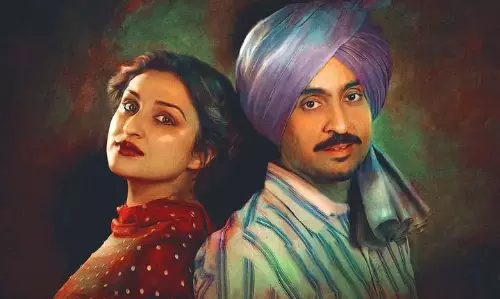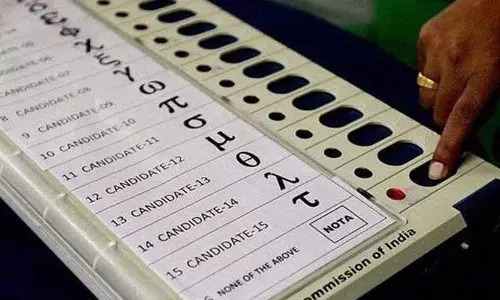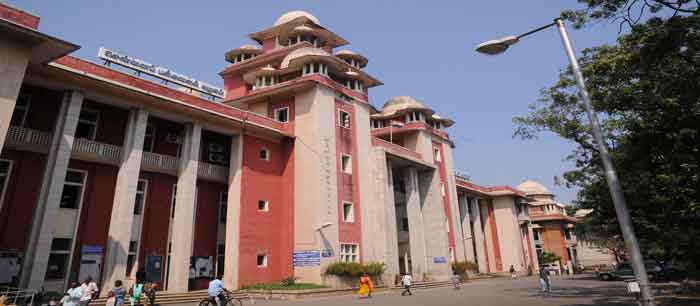
Laws not to be formed by Courts
text_fieldsA candidate who failed a recruitment test by losing the minimum eligibility mark by a single mark due to wrong evaluation for a question approaches the court.
He files a petition requesting to allow him the marks for his ‘right’ answer. The question was the language in which ‘Vande Mataram’ was first written. The candidate had written the answer as Bengali but his answer was marked wrong. The Madras High Court delivered the verdict. One of the outcomes of the ruling was that all educational institutions in Tamil Nadu should play and sing Vande Mataram at least once a week. Secondly, singing the national song should be made mandatory in government offices and private companies and institutions at least once a month. Whether the verdict that was passed without considering the resistances if any, is a violation of implementation of justice as well as that of Constitutional rights, is yet to be seen in discourses.
Alongside, it also reminds us about contemplating on the atrocities of our judicial activism. By going far beyond the issues raised in the petition and overriding the judicial procedures, the court has declared a new law. The question whether it is the job of the court or not is relevant in a Constitutional democracy. Justice M V Muralidharan moving away from the subject of the plea, passed the verdict that pertained to paying respect to the national song and national flag and above all, respecting ‘Vande Mataram’. An inquiry into the matter based on the Constitution and the judicial system is essential for maintaining the credibility of the court procedures. In part III of the Constitution, Article 226 empowers the High Courts to protect and safeguard the fundamental rights of the citizens.
However, the order to sing Vande Mataram violates the boundaries of that power. It’s also contradictory to a Supreme Court statement in last February clarifying the matter. The apex court had said that the Constitution deals only with the National Anthem and not the National Song. The court therefore maintained that it didn’t intend to enter into any debate as far as the National Song is concerned. How could a High Court deliver another verdict that violates that explanation? The Supreme Court’s statement in the Jehovah’s Witness case of 1986 is also relevant. The court had said that the judiciary couldn’t compel people in matters pertaining to one’s beliefs and doing so was akin to violating the fundamental right to religion.
The matter demands a broad discourse. The fact as to what extent the courts have the right to form legislatures is also equally significant. The Constitution has been categorized into three functioning branches namely the Legislative, executive and judiciary for specific objectives. When any of these trespasses into another’s territory, it’s the democracy and the smooth functioning of the Constitution that suffers a jolt. Assemblies and governments shouldn’t intervene in the functioning of the judiciary. And the judiciary shouldn’t take over the responsibility of forming legislatures or running the government on its own. Legal experts have pointed out this balance being eroded steadily in recent past. The courts have passed many ‘laws’ in recent past including one by the Allahabad High Court which ruled that all government servants should send their children to government schools as well as another law by the Gujarat High Court that stated that only CNG vehicles shall be given registration.
There have been complaints of the courts using the power to form laws in cases such as Jallikattu, waving off farmer loans, collecting money at tollbooths, charging special fee to curb the rush at airports and conducting NEET exams. Former Chief Justice J S Varma had said in his speech that the courts have intervened in many cases and also threatened of Contempt of Court moves if the orders weren't implemented. ‘There is an instance of the judiciary intervening in the case of an ‘anonymous car’ passing through the Tughlaq road; There is an incident of ordering to provide a special bungalow to a judge; in an issue of monkeys causing annoyance, cattle in the streets, in keeping the public washrooms clean, and in charging a special fee during rush hours at airports. The judiciary has the power to analyse and define the law and the Constitution in order to resolve the cases coming before the court. However, it’s not the judiciary that should form laws. Forming laws unilaterally without comprehending the various aspects and shades of the matter would only make matters more complicated. Just like the political leaders and the lawmakers, courts and the judges should also submit to the law and the Constitution. Otherwise, the law and order system would break down. The credibility, which is oxygen for the judiciary, as well.























